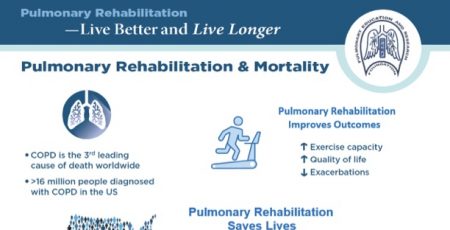30 Jan Breath Training Before Surgery Can Cut the Risk of Pneumonia in Half
People often worry about the risk of complication or even death when undergoing general anesthesia for major surgery, but the risk of hospital-acquired postoperative pneumonia is another serious concern, especially following major abdominal surgery. A new study, though, has shown a way to cut that risk in half. When patients practiced breathing exercises immediately after surgery, the incidence of pneumonia was reduced by 50%.
Researchers conducted a randomized double-blind trial, studying 441 patients in multiple medical centers in Australia and New Zealand who were scheduled for upper abdominal surgery. Prior to their surgery, about half of the patients received 30 minutes of education and in-person breathing exercise instruction. The remaining patients received an information booklet that discussed the potential benefits of early ambulation (getting out of bed and engaging in light activity) and breathing exercises to reduce the risk of postoperative pulmonary complications (PPC).
After surgery, all the patients in the study received standard postoperative care, which included a physiotherapist-directed ambulatory program starting on the first day after surgery.
Within two weeks after surgery, 20% of the entire study group developed PPC. Of those, 27 patients were from the group that had received the in-person breathing exercise instruction and 58 were from the group that had not, meaning that patients who had received breathing exercise instruction comprised less than half of the patients who developed PPC. After adjusting for comorbidities (the simultaneous presence of two chronic diseases or conditions), patient demographics, and surgical factors, it was concluded that the risk for PPC dropped by 52% when pre-surgery breathing exercises were taught in person to the patients.
Said Ianthe Boden, BAppSc, from the Department of Physiotherapy at Launceston General Hospital, Tasmania, Australia, and the Department of Physiotherapy at the University of Melbourne, “These results are directly applicable to the tens of millions of patients listed for elective major abdominal surgery worldwide.”
Information for this article was obtained from Medscape and BMJ.





Dan Buck
Posted at 17:43h, 02 AprilSo where do I find those exercises?